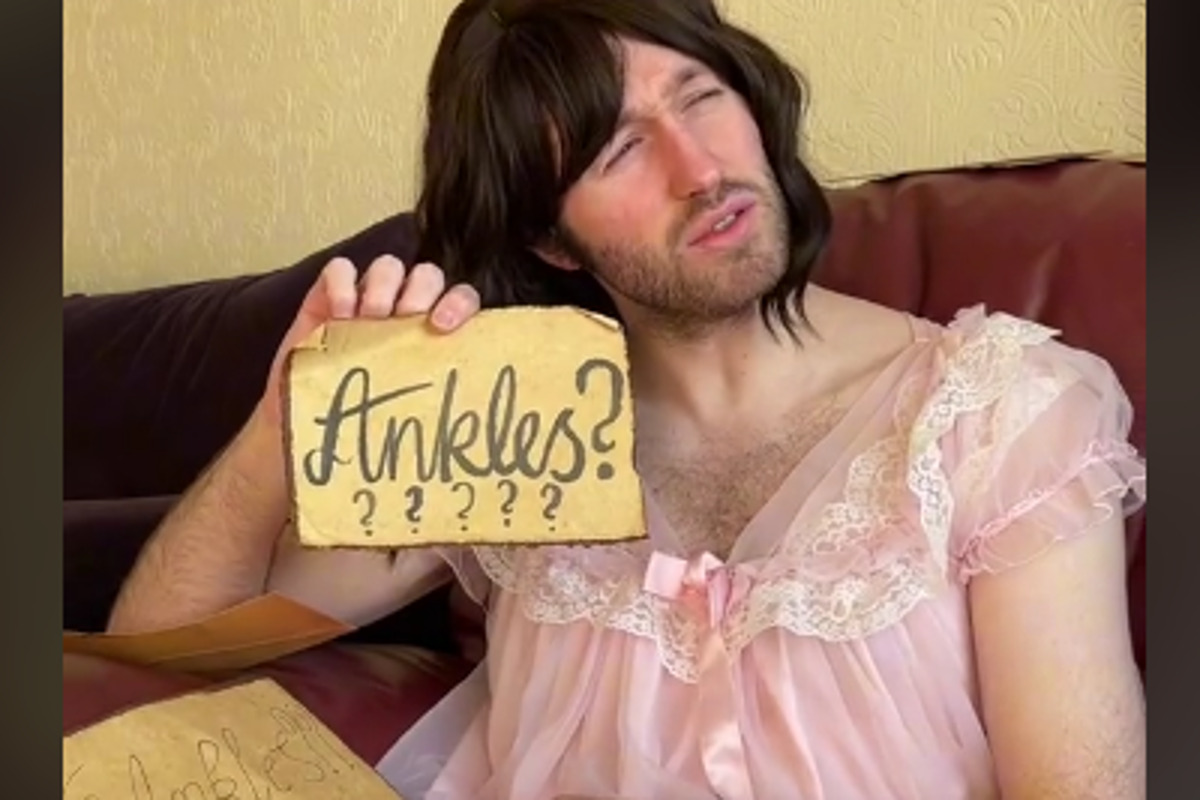This Comedian’s Lovingly Satirical Period Drama Highlights the Genre’s Absurdity Without Hating

No matter how much you love period dramas, you might find it hard not to notice that a lot of the genre’s characters and their problems are, well, ridiculous. The sort of thing that could be easily resolved if anyone, literally anyone on the page or screen had just a smidgen of common sense? Well, you’re not alone, and while most satirical takes on period dramas lean heavily into misogyny, a hurr hurr girls like this stuff approach centered around what people who’ve never actually watched period dramas think they’re about, comedian Christian Brighty’s loving exploration of the absurd side of period dramas is a breath of fresh air.
It began with a question that morphed into a series. Starting with, and regularly returning to, the matter of why are men like this, period drama style, Brighty roams across the genre tackling tropes and narratives we’re all so used to by now that we barely think about them anymore. From the absurdity of the expiration date placed on young women in the marriage market to exposing the Byronic hero for the asshole he truly is, it’s all in there. Watching Brighty, with his mastery of physical comedy, clown his way through the subject matter is strangely satisfying when you’ve just spent an entire season of something yelling at the protagonists to get their shit together.
It’s the love part that really does make the difference with Brighty. He’s not coming in from the outside with a sense of superiority and a box of preconceptions, he’s an actual fan of the genre and it’s clear he genuinely enjoys even a lot of the sillier aspects of it which makes his deconstruction really fun to watch. This especially comes out in his TikTok series “Mr. Flourfry and Rupert,” where his enthusiasm and understanding of period dramas somehow get you invested in characters who were clearly originally intended for a throwaway sketch. Yes, they’re all called things like Fenelope and Floufry, with the women played by Brighty in a series of nightgowns, but you come away really invested in their lives, and how their various romances are going to end.
That love doesn’t keep Brighty from tackling some of the real issues with the genre, or the problems they stem from in real life. Just by the nature of historical fiction, misogyny is the big one, given it’s baked into the setting. Brighty wrestles with the cognitive dissonance I think most of us feel when his characters question whether and why any of what they’re dealing with is actually romantic. It’s not, obviously, of course it’s not, but somehow the sweeping dresses and wet shirts manage to spin the fantasy anyway as long as you don’t think too much about the realities of the society the characters live in.
It’s the same with the financial aspect of these realities, and how if the writer’s done their job right the audience often finds themselves rooting for the 19th-century version of Jeff Bezos to get the girl and live happily ever after. It’s a bit of an uncomfortable position to find yourself in, being a period drama fan if you’re also even vaguely leftist, a discomfort Brighty tackles with gentle, self-aware humor.
Enjoying period dramas requires a lot of suspension of disbelief, but it’s good to acknowledge that and check in to ensure, yes, we’re all seeing it too. Christian Brighty’s a great person to do that with.
(featured image: Christian Brighty/TikTok)
Have a tip we should know? tips@themarysue.com